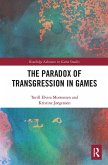The Psychology of Extremism
A Motivational Perspective
Herausgegeben:Kruglanski, Arie; Kopetz, Catalina; Szumowska, Ewa
The Psychology of Extremism
A Motivational Perspective
Herausgegeben:Kruglanski, Arie; Kopetz, Catalina; Szumowska, Ewa
- Broschiertes Buch
- Merkliste
- Auf die Merkliste
- Bewerten Bewerten
- Teilen
- Produkt teilen
- Produkterinnerung
- Produkterinnerung
This ground-breaking book introduces a new model of extremism that emphasizes motivational imbalance among individual needs, offering a unique multidisciplinary exploration of extreme behaviors relating to terrorism, dieting, sports, love, addictions, and money.
In popular discourse, the term 'extremism' has come to mean largely 'violent extremism', but this is just one of many different types: extreme sports, extreme diets, political and religious extremisms, extreme self-interest, extreme attitudes, extreme devotion to a cause, addiction to substances, or behavioral addiction (to…mehr
Andere Kunden interessierten sich auch für
![Phenomenology and the Extreme Sport Experience Phenomenology and the Extreme Sport Experience]() Eric BrymerPhenomenology and the Extreme Sport Experience60,99 €
Eric BrymerPhenomenology and the Extreme Sport Experience60,99 €![Adventure Psychology Adventure Psychology]() Adventure Psychology39,99 €
Adventure Psychology39,99 €![The Routledge International Handbook of Discrimination, Prejudice and Stereotyping The Routledge International Handbook of Discrimination, Prejudice and Stereotyping]() The Routledge International Handbook of Discrimination, Prejudice and Stereotyping47,99 €
The Routledge International Handbook of Discrimination, Prejudice and Stereotyping47,99 €![The Psychology of Terrorism The Psychology of Terrorism]() Neil ShortlandThe Psychology of Terrorism21,99 €
Neil ShortlandThe Psychology of Terrorism21,99 €![The Paradox of Transgression in Games The Paradox of Transgression in Games]() Torill MortensenThe Paradox of Transgression in Games41,99 €
Torill MortensenThe Paradox of Transgression in Games41,99 €![Extremism Extremism]() J. M. BergerExtremism22,99 €
J. M. BergerExtremism22,99 €![The Role of Coloniality, Decoloniality, and Education in Shaping Perspectives on Extremism The Role of Coloniality, Decoloniality, and Education in Shaping Perspectives on Extremism]() Helal Hossain DhaliThe Role of Coloniality, Decoloniality, and Education in Shaping Perspectives on Extremism152,99 €
Helal Hossain DhaliThe Role of Coloniality, Decoloniality, and Education in Shaping Perspectives on Extremism152,99 €-
-
-
This ground-breaking book introduces a new model of extremism that emphasizes motivational imbalance among individual needs, offering a unique multidisciplinary exploration of extreme behaviors relating to terrorism, dieting, sports, love, addictions, and money.
In popular discourse, the term 'extremism' has come to mean largely 'violent extremism', but this is just one of many different types: extreme sports, extreme diets, political and religious extremisms, extreme self-interest, extreme attitudes, extreme devotion to a cause, addiction to substances, or behavioral addiction (to videogames, shopping, pornography, sex, and work). But do these descriptions have a deeper meaning? Do they reveal a common psychological dynamic? Or are they merely a mode of things about phenomena that have little in common? Bringing together world-leading psychologists from a variety of disciplines, the book uses a brand-new model to examine different expressions of extremism, at different levels of analysis (brain, hormones, and behavior), in order not merely to describe such behaviors but also to explain their occurrence, and the conditions under which they may be likely to emerge.
Also including suggestions for ways in which extremism could be counteracted, and to what extent it appears to be harmful to individuals and society, this is essential reading for students and academics in psychology and behavioral sciences.
In popular discourse, the term 'extremism' has come to mean largely 'violent extremism', but this is just one of many different types: extreme sports, extreme diets, political and religious extremisms, extreme self-interest, extreme attitudes, extreme devotion to a cause, addiction to substances, or behavioral addiction (to videogames, shopping, pornography, sex, and work). But do these descriptions have a deeper meaning? Do they reveal a common psychological dynamic? Or are they merely a mode of things about phenomena that have little in common? Bringing together world-leading psychologists from a variety of disciplines, the book uses a brand-new model to examine different expressions of extremism, at different levels of analysis (brain, hormones, and behavior), in order not merely to describe such behaviors but also to explain their occurrence, and the conditions under which they may be likely to emerge.
Also including suggestions for ways in which extremism could be counteracted, and to what extent it appears to be harmful to individuals and society, this is essential reading for students and academics in psychology and behavioral sciences.
Produktdetails
- Produktdetails
- Frontiers of Social Psychology
- Verlag: Routledge / Taylor & Francis
- Seitenzahl: 330
- Erscheinungstermin: 13. September 2021
- Englisch
- Abmessung: 229mm x 152mm x 18mm
- Gewicht: 610g
- ISBN-13: 9780367467609
- ISBN-10: 0367467607
- Artikelnr.: 62150668
- Herstellerkennzeichnung
- Libri GmbH
- Europaallee 1
- 36244 Bad Hersfeld
- gpsr@libri.de
- Frontiers of Social Psychology
- Verlag: Routledge / Taylor & Francis
- Seitenzahl: 330
- Erscheinungstermin: 13. September 2021
- Englisch
- Abmessung: 229mm x 152mm x 18mm
- Gewicht: 610g
- ISBN-13: 9780367467609
- ISBN-10: 0367467607
- Artikelnr.: 62150668
- Herstellerkennzeichnung
- Libri GmbH
- Europaallee 1
- 36244 Bad Hersfeld
- gpsr@libri.de
Arie W. Kruglanski is Distinguished University Professor of Psychology at the University of Maryland, USA. He has received the National Institute of Mental Health Research Scientist Award, the Donald Campbell Award for Outstanding Contributions to Social Psychology, the University of Maryland Regents Award for Scholarship and Creativity, and the Distinguished Scientific Contribution Award from the Society for Experimental Social Psychology. Kruglanski has published over 400 articles, chapters, and books on motivated social cognition; served on NAS panels on the social and behavioral aspects of terrorism; and co-founded the National Center of Excellence for the Study of Terrorism and the Response to Terrorism. He was the PI on a MINERVA grant from the Office of Naval Research on the determinants of radicalization and is presently the PI on a MINERVA grant on Syrian refugees' potential for radicalization. Catalina Kopetz is Associate Professor of Psychology at Wayne State University, USA. Her research focuses on the mechanisms that underlie multiple goal pursuit and management of goal conflict and their implications for risk-taking. She has published in prestigious journals spanning social and clinical psychology, prevention sciences, psychopharmacology, and behavioral and brain sciences, as well as journals appealing to a broader audience, such as Perspectives in Psychological Science, Current Directions in Psychological Science, and Psychological Review. Her research has been funded by the National Institutes of Health (including NIDA, NCI, and NIAAA). Ewa Szumowska, is a researcher at the Social Psychology Unit in the Institute of Psychology at Jagiellonian University in Krakow, Poland, and a member of the Center for Social Cognitive Studies Krakow, Association for Psychological Science, and the European Association of Social Psychology. She is an author and co-author of scientific publications in journals, such as Psychological Review, Psychological Inquiry, Perspectives on Psychological Science, Cognition, and Personality and Individual Differences. She studies motivation, information processing, multiple goal pursuit, and extremism.
The Psychology of Extremism
Arie W. Kruglanski, Ewa Szumowska, and Catalina Kopetz
Extremism as a Motivational Construct
Consequences of Motivational Imbalance
The Present Volume: Motivational Imbalance Across Domains and Levels of Analysis
Part 1: Motivational Imbalance at Different Levels of Analysis
Part 2: Motivational Imbalance Across Domains of Human Endeavor
Part 1: Motivational Imbalance at Different Levels of Analysis
1. Incentive Salience in Irrational Miswanting and Extreme Motivation
H. M. Baumgartner, Erin E. Naffziger, David Nguyen, and Kent C. Berridge
Introduction
Reward Utilities and 'Wanting'
Attribution of Incentive Salience
'Irrational Miswanting' and 'Dangerous Desire'
Conclusion and Implications in Extreme Aggression
2. Attitudinal Extremism
Joseph J. Siev, Richard E. Petty, and Pablo Briñol
Developing a Model of Attitudinal Extremism
Candidates for Inclusion in a Model of Attitudinal Extremism
Properties of Attitudes That Increase Attributions of Extremism
Processes that Produce Polarized, Confident, and Unusual Attitudes
Properties of Attitudes that Predict Extreme Behavior
Threat as a Moderator of Compensation Effects
Conclusions
3. On Extreme Behavior and Outcomes: The Role of Harmonious and Obsessive Passion
Robert J. Vallerand and Virginie Paquette
A Dualistic Model of Passion
Passion and Extreme Behavior
Conclusions
4. The Extreme Group
John M. Levine and Arie W. Kruglanski
The Present Chapter
Quest for Significance
Narratives
Networks
Conclusion
5. Masters of Both: Balancing the Extremes of Innovation Through Tight-Loose Ambidexterity
Piotr Prokopowicz, Virginia K. Choi, and Michele J. Gelfand
Exploration and Exploitation: Understanding the Extremes of Innovation
Cultural Tightness-Looseness
Exploring Looseness, Exploiting Tightness
The Goldilocks Principle of Innovation
Discussion
Funding
6. The Evolution of Extremis
William von Hippel and Nadia Fox
How Might Extremism Have Evolved?
What Function Might Extremism Serve?
Is Extremism Unique to Humans?
How Does Morality Attenuate and Exacerbate Extremism?
Implications and Conclusions
Part 2: Motivational Imbalance Across Domains of Human Endeavor
7. The Psychology of Extreme Sports
Eric Brymer and Pierre Bouchat
Introduction
Traditional Perspectives on the Psychology of Extreme Sports
Beyond the Risk-Taking Narrative
Positive Psychology Perspectives
8. The Psychology of Gree
Katalin Takacs Haynes
Introduction to Greed Narratives
What Is Greed and Why Is It Extreme?
History of Greed
Greed in the Social Sciences
Multilevel Model of Greed as Extremism
Mitigating the Problem
9. Moral, Extreme, and Positive: What Are the Key Issues for the Study of the Morally Exceptional
William Fleeson, Christian Miller, R. Michael Furr, Angela Knobel, and Eranda Jayawickreme
The Promise of Studying the Morally Exceptional
Do Morally Exceptional People Exist?
Theoretical, Philosophical, and Theological Accounts of the Morally Exceptional
Empirical Findings: Why Are Some People Extremely Moral?
What Is Not Known
Three Difficulties for the Study of the Morally Exceptional and Strategies for Addressing Them
Difficulty 1: What Counts as 'Moral' and What Counts as 'Morally Good'?
Difficulty 2: What Counts as Exceptional?
Difficulty 3: What Will Be Added to the Study of Morality by Studying the Morally Exceptional in Particular?
Conclusion
Acknowledgments
10. The Social Psychology of Violent Extremism
Erica Molinario, Katarzyna Jasko, David Webber, and Arie W. Kruglanski
Introduction
Perceived Efficacy of Violence
Feeling Noticed and Agentic
Ingroup Identification
Culturally Approved Violence
Violence as a Clear Response
Relative Deprivation and Inequality
The 3N Framework: Need, Narrative, and Networks
Conclusion
11. Motivational Imbalance in Jihadi Online Recruitment
Gabriel Weimann
Introduction
Online Recruitment
The Notion of Motivational Imbalance
'Narrowcasting'
Using Motivational Imbalance in Jihadi campaigns
Conclusions
Arie W. Kruglanski, Ewa Szumowska, and Catalina Kopetz
Extremism as a Motivational Construct
Consequences of Motivational Imbalance
The Present Volume: Motivational Imbalance Across Domains and Levels of Analysis
Part 1: Motivational Imbalance at Different Levels of Analysis
Part 2: Motivational Imbalance Across Domains of Human Endeavor
Part 1: Motivational Imbalance at Different Levels of Analysis
1. Incentive Salience in Irrational Miswanting and Extreme Motivation
H. M. Baumgartner, Erin E. Naffziger, David Nguyen, and Kent C. Berridge
Introduction
Reward Utilities and 'Wanting'
Attribution of Incentive Salience
'Irrational Miswanting' and 'Dangerous Desire'
Conclusion and Implications in Extreme Aggression
2. Attitudinal Extremism
Joseph J. Siev, Richard E. Petty, and Pablo Briñol
Developing a Model of Attitudinal Extremism
Candidates for Inclusion in a Model of Attitudinal Extremism
Properties of Attitudes That Increase Attributions of Extremism
Processes that Produce Polarized, Confident, and Unusual Attitudes
Properties of Attitudes that Predict Extreme Behavior
Threat as a Moderator of Compensation Effects
Conclusions
3. On Extreme Behavior and Outcomes: The Role of Harmonious and Obsessive Passion
Robert J. Vallerand and Virginie Paquette
A Dualistic Model of Passion
Passion and Extreme Behavior
Conclusions
4. The Extreme Group
John M. Levine and Arie W. Kruglanski
The Present Chapter
Quest for Significance
Narratives
Networks
Conclusion
5. Masters of Both: Balancing the Extremes of Innovation Through Tight-Loose Ambidexterity
Piotr Prokopowicz, Virginia K. Choi, and Michele J. Gelfand
Exploration and Exploitation: Understanding the Extremes of Innovation
Cultural Tightness-Looseness
Exploring Looseness, Exploiting Tightness
The Goldilocks Principle of Innovation
Discussion
Funding
6. The Evolution of Extremis
William von Hippel and Nadia Fox
How Might Extremism Have Evolved?
What Function Might Extremism Serve?
Is Extremism Unique to Humans?
How Does Morality Attenuate and Exacerbate Extremism?
Implications and Conclusions
Part 2: Motivational Imbalance Across Domains of Human Endeavor
7. The Psychology of Extreme Sports
Eric Brymer and Pierre Bouchat
Introduction
Traditional Perspectives on the Psychology of Extreme Sports
Beyond the Risk-Taking Narrative
Positive Psychology Perspectives
8. The Psychology of Gree
Katalin Takacs Haynes
Introduction to Greed Narratives
What Is Greed and Why Is It Extreme?
History of Greed
Greed in the Social Sciences
Multilevel Model of Greed as Extremism
Mitigating the Problem
9. Moral, Extreme, and Positive: What Are the Key Issues for the Study of the Morally Exceptional
William Fleeson, Christian Miller, R. Michael Furr, Angela Knobel, and Eranda Jayawickreme
The Promise of Studying the Morally Exceptional
Do Morally Exceptional People Exist?
Theoretical, Philosophical, and Theological Accounts of the Morally Exceptional
Empirical Findings: Why Are Some People Extremely Moral?
What Is Not Known
Three Difficulties for the Study of the Morally Exceptional and Strategies for Addressing Them
Difficulty 1: What Counts as 'Moral' and What Counts as 'Morally Good'?
Difficulty 2: What Counts as Exceptional?
Difficulty 3: What Will Be Added to the Study of Morality by Studying the Morally Exceptional in Particular?
Conclusion
Acknowledgments
10. The Social Psychology of Violent Extremism
Erica Molinario, Katarzyna Jasko, David Webber, and Arie W. Kruglanski
Introduction
Perceived Efficacy of Violence
Feeling Noticed and Agentic
Ingroup Identification
Culturally Approved Violence
Violence as a Clear Response
Relative Deprivation and Inequality
The 3N Framework: Need, Narrative, and Networks
Conclusion
11. Motivational Imbalance in Jihadi Online Recruitment
Gabriel Weimann
Introduction
Online Recruitment
The Notion of Motivational Imbalance
'Narrowcasting'
Using Motivational Imbalance in Jihadi campaigns
Conclusions
The Psychology of Extremism
Arie W. Kruglanski, Ewa Szumowska, and Catalina Kopetz
Extremism as a Motivational Construct
Consequences of Motivational Imbalance
The Present Volume: Motivational Imbalance Across Domains and Levels of Analysis
Part 1: Motivational Imbalance at Different Levels of Analysis
Part 2: Motivational Imbalance Across Domains of Human Endeavor
Part 1: Motivational Imbalance at Different Levels of Analysis
1. Incentive Salience in Irrational Miswanting and Extreme Motivation
H. M. Baumgartner, Erin E. Naffziger, David Nguyen, and Kent C. Berridge
Introduction
Reward Utilities and 'Wanting'
Attribution of Incentive Salience
'Irrational Miswanting' and 'Dangerous Desire'
Conclusion and Implications in Extreme Aggression
2. Attitudinal Extremism
Joseph J. Siev, Richard E. Petty, and Pablo Briñol
Developing a Model of Attitudinal Extremism
Candidates for Inclusion in a Model of Attitudinal Extremism
Properties of Attitudes That Increase Attributions of Extremism
Processes that Produce Polarized, Confident, and Unusual Attitudes
Properties of Attitudes that Predict Extreme Behavior
Threat as a Moderator of Compensation Effects
Conclusions
3. On Extreme Behavior and Outcomes: The Role of Harmonious and Obsessive Passion
Robert J. Vallerand and Virginie Paquette
A Dualistic Model of Passion
Passion and Extreme Behavior
Conclusions
4. The Extreme Group
John M. Levine and Arie W. Kruglanski
The Present Chapter
Quest for Significance
Narratives
Networks
Conclusion
5. Masters of Both: Balancing the Extremes of Innovation Through Tight-Loose Ambidexterity
Piotr Prokopowicz, Virginia K. Choi, and Michele J. Gelfand
Exploration and Exploitation: Understanding the Extremes of Innovation
Cultural Tightness-Looseness
Exploring Looseness, Exploiting Tightness
The Goldilocks Principle of Innovation
Discussion
Funding
6. The Evolution of Extremis
William von Hippel and Nadia Fox
How Might Extremism Have Evolved?
What Function Might Extremism Serve?
Is Extremism Unique to Humans?
How Does Morality Attenuate and Exacerbate Extremism?
Implications and Conclusions
Part 2: Motivational Imbalance Across Domains of Human Endeavor
7. The Psychology of Extreme Sports
Eric Brymer and Pierre Bouchat
Introduction
Traditional Perspectives on the Psychology of Extreme Sports
Beyond the Risk-Taking Narrative
Positive Psychology Perspectives
8. The Psychology of Gree
Katalin Takacs Haynes
Introduction to Greed Narratives
What Is Greed and Why Is It Extreme?
History of Greed
Greed in the Social Sciences
Multilevel Model of Greed as Extremism
Mitigating the Problem
9. Moral, Extreme, and Positive: What Are the Key Issues for the Study of the Morally Exceptional
William Fleeson, Christian Miller, R. Michael Furr, Angela Knobel, and Eranda Jayawickreme
The Promise of Studying the Morally Exceptional
Do Morally Exceptional People Exist?
Theoretical, Philosophical, and Theological Accounts of the Morally Exceptional
Empirical Findings: Why Are Some People Extremely Moral?
What Is Not Known
Three Difficulties for the Study of the Morally Exceptional and Strategies for Addressing Them
Difficulty 1: What Counts as 'Moral' and What Counts as 'Morally Good'?
Difficulty 2: What Counts as Exceptional?
Difficulty 3: What Will Be Added to the Study of Morality by Studying the Morally Exceptional in Particular?
Conclusion
Acknowledgments
10. The Social Psychology of Violent Extremism
Erica Molinario, Katarzyna Jasko, David Webber, and Arie W. Kruglanski
Introduction
Perceived Efficacy of Violence
Feeling Noticed and Agentic
Ingroup Identification
Culturally Approved Violence
Violence as a Clear Response
Relative Deprivation and Inequality
The 3N Framework: Need, Narrative, and Networks
Conclusion
11. Motivational Imbalance in Jihadi Online Recruitment
Gabriel Weimann
Introduction
Online Recruitment
The Notion of Motivational Imbalance
'Narrowcasting'
Using Motivational Imbalance in Jihadi campaigns
Conclusions
Arie W. Kruglanski, Ewa Szumowska, and Catalina Kopetz
Extremism as a Motivational Construct
Consequences of Motivational Imbalance
The Present Volume: Motivational Imbalance Across Domains and Levels of Analysis
Part 1: Motivational Imbalance at Different Levels of Analysis
Part 2: Motivational Imbalance Across Domains of Human Endeavor
Part 1: Motivational Imbalance at Different Levels of Analysis
1. Incentive Salience in Irrational Miswanting and Extreme Motivation
H. M. Baumgartner, Erin E. Naffziger, David Nguyen, and Kent C. Berridge
Introduction
Reward Utilities and 'Wanting'
Attribution of Incentive Salience
'Irrational Miswanting' and 'Dangerous Desire'
Conclusion and Implications in Extreme Aggression
2. Attitudinal Extremism
Joseph J. Siev, Richard E. Petty, and Pablo Briñol
Developing a Model of Attitudinal Extremism
Candidates for Inclusion in a Model of Attitudinal Extremism
Properties of Attitudes That Increase Attributions of Extremism
Processes that Produce Polarized, Confident, and Unusual Attitudes
Properties of Attitudes that Predict Extreme Behavior
Threat as a Moderator of Compensation Effects
Conclusions
3. On Extreme Behavior and Outcomes: The Role of Harmonious and Obsessive Passion
Robert J. Vallerand and Virginie Paquette
A Dualistic Model of Passion
Passion and Extreme Behavior
Conclusions
4. The Extreme Group
John M. Levine and Arie W. Kruglanski
The Present Chapter
Quest for Significance
Narratives
Networks
Conclusion
5. Masters of Both: Balancing the Extremes of Innovation Through Tight-Loose Ambidexterity
Piotr Prokopowicz, Virginia K. Choi, and Michele J. Gelfand
Exploration and Exploitation: Understanding the Extremes of Innovation
Cultural Tightness-Looseness
Exploring Looseness, Exploiting Tightness
The Goldilocks Principle of Innovation
Discussion
Funding
6. The Evolution of Extremis
William von Hippel and Nadia Fox
How Might Extremism Have Evolved?
What Function Might Extremism Serve?
Is Extremism Unique to Humans?
How Does Morality Attenuate and Exacerbate Extremism?
Implications and Conclusions
Part 2: Motivational Imbalance Across Domains of Human Endeavor
7. The Psychology of Extreme Sports
Eric Brymer and Pierre Bouchat
Introduction
Traditional Perspectives on the Psychology of Extreme Sports
Beyond the Risk-Taking Narrative
Positive Psychology Perspectives
8. The Psychology of Gree
Katalin Takacs Haynes
Introduction to Greed Narratives
What Is Greed and Why Is It Extreme?
History of Greed
Greed in the Social Sciences
Multilevel Model of Greed as Extremism
Mitigating the Problem
9. Moral, Extreme, and Positive: What Are the Key Issues for the Study of the Morally Exceptional
William Fleeson, Christian Miller, R. Michael Furr, Angela Knobel, and Eranda Jayawickreme
The Promise of Studying the Morally Exceptional
Do Morally Exceptional People Exist?
Theoretical, Philosophical, and Theological Accounts of the Morally Exceptional
Empirical Findings: Why Are Some People Extremely Moral?
What Is Not Known
Three Difficulties for the Study of the Morally Exceptional and Strategies for Addressing Them
Difficulty 1: What Counts as 'Moral' and What Counts as 'Morally Good'?
Difficulty 2: What Counts as Exceptional?
Difficulty 3: What Will Be Added to the Study of Morality by Studying the Morally Exceptional in Particular?
Conclusion
Acknowledgments
10. The Social Psychology of Violent Extremism
Erica Molinario, Katarzyna Jasko, David Webber, and Arie W. Kruglanski
Introduction
Perceived Efficacy of Violence
Feeling Noticed and Agentic
Ingroup Identification
Culturally Approved Violence
Violence as a Clear Response
Relative Deprivation and Inequality
The 3N Framework: Need, Narrative, and Networks
Conclusion
11. Motivational Imbalance in Jihadi Online Recruitment
Gabriel Weimann
Introduction
Online Recruitment
The Notion of Motivational Imbalance
'Narrowcasting'
Using Motivational Imbalance in Jihadi campaigns
Conclusions








